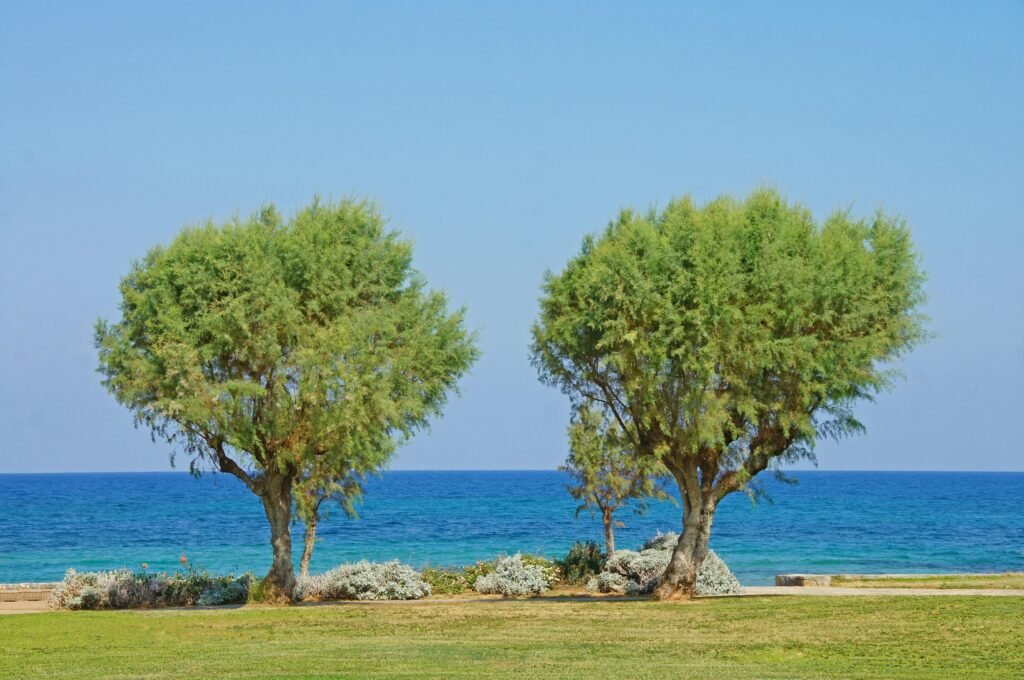Introduction: Discovering the Hidden Treasures of Egypt
When one thinks of Egypt, the majestic pyramids and the Great Sphinx often come to mind, overshadowing the countless other wonders this ancient land has to offer. While these iconic landmarks certainly deserve their place as must-see attractions, they represent only a fraction of the rich tapestry that is Egyptian culture. Beyond the pyramids lies a treasure trove of experiences that showcase the country’s diverse landscapes, vibrant local communities, and an array of activities that cater to various interests.

Egypt’s allure extends far beyond its historical monuments. From the serene beauty of the White Desert, where surreal limestone formations create a landscape reminiscent of another planet, to the bustling markets of Cairo where one can immerse themselves in the authentic rhythms of daily life, the country presents a multitude of opportunities for adventurous travelers. The fertile banks of the Nile River offer a glimpse into the agrarian traditions that have sustained civilizations for millennia, while the coastal resorts along the Red Sea promise pristine beaches, vibrant coral reefs, and exhilarating water sports.
Moreover, Egypt is home to a rich array of cultural festivals, traditional music, and local culinary delights that further enhance the travel experience. Engaging with local artisans and participating in community celebrations provides a unique insight into the ways of life that govern the rhythm of this intriguing nation. Whether you seek thrilling outdoor adventures, in-depth cultural experiences, or serene moments in nature, Egypt holds numerous hidden treasures waiting to be discovered. Exploring these less-traveled paths will not only broaden one’s understanding of the country but also create lasting memories that transcend the typical tourist itinerary.
Untouched Beaches: Exploring the Mediterranean Coast
Egypt is renowned for its historical landmarks and the iconic pyramids, but it also boasts a breathtaking Mediterranean coastline that is often overlooked by tourists. The stunning beaches along the Mediterranean coast, especially in cities like Alexandria and Marsa Matruh, offer a tranquil escape from the hustle and bustle of traditional tourist destinations. These beaches are characterized by their crystal-clear waters, fine golden sands, and a serene atmosphere that invites relaxation.

In Alexandria, visitors can enjoy a blend of stunning seaside views and rich history. The city’s beachfront promenades are perfect for leisurely strolls, while the local eateries serve a variety of delectable seafood dishes. Sipping on fresh juices and sampling local delicacies while gazing at the Mediterranean Sea creates an unforgettable experience. The city’s historic sites, such as the Citadel of Qaitbay, provide opportunities for cultural immersion alongside beach relaxation.
Marsa Matruh, further along the coast, is equally captivating with its pristine beaches and less crowded atmosphere. This town is a hidden gem that caters to those seeking a quieter vacation. The unspoiled nature of the beaches allows visitors to unwind completely, while water sports such as snorkeling, windsurfing, and diving cater to the adventurous spirit. The vibrant marine life and stunning coral reefs make these activities particularly rewarding, offering an engaging way to appreciate the natural beauty of the region.
Moreover, engaging with local communities can enhance the travel experience. Beachfront markets often offer an array of handmade crafts, and traditional cuisine reflects the rich cultural tapestry of Egypt. This unique combination of natural beauty, local flavor, and cultural richness makes the Mediterranean coast one of Egypt’s unexpected treasures, ensuring an enriching experience far removed from the usual tourist trail.
The Siwa Oasis: A Journey into Egypt’s Desert Paradise
The Siwa Oasis, nestled in the western part of Egypt near the Libyan border, is an enchanting destination that offers travelers a unique experience far removed from the hustle and bustle of Cairo and the usual tourist hotspots. Renowned for its astonishing landscapes and rich cultural heritage, Siwa has become increasingly popular among adventure seekers and culture enthusiasts alike.

One of the significant attractions of the Siwa Oasis is its stunning natural springs. Travelers can indulge in relaxing baths at the Cleopatra Pool, a natural spring renowned for its crystal-clear waters and therapeutic properties. Such experiences provide not only a refreshing respite from the desert heat but also an opportunity to connect with nature. The surrounding palm groves and sand dunes create a picturesque backdrop, making the oasis a prime location for photography and relaxation.
In addition to its natural offerings, the Siwa Oasis is also steeped in history. Visitors can explore the ancient ruins of the Temple of the Oracle, which dates back to the 6th century BC. This site holds significant archaeological and cultural importance, historically serving as a place where Alexander the Great received prophecies. Walking amidst these ruins provides a deep insight into the region’s past and its connection to ancient Egyptian civilization.
Beyond its historical landmarks, Siwa is a treasure trove for artisanal crafts. Local artisans are known for producing intricate handmade goods, such as pottery, palm-weaving, and traditional textiles. Tourists can engage with these artisans, gaining an understanding of their techniques and the cultural significance behind each craft. This not only supports the local economy but also offers a unique opportunity to take home authentic souvenirs.
Overall, the Siwa Oasis stands out as a compelling destination that combines breathtaking landscapes, rich cultural experiences, and opportunities for adventure. It invites visitors to explore its unique heritage, creating lasting memories in this desert paradise.
The Red Sea: Snorkeling and Diving Adventures
The Red Sea is widely recognized as one of the premier destinations for snorkeling and diving enthusiasts worldwide. With its crystal-clear waters, diverse marine life, and stunning coral reefs, it offers an underwater experience that is both captivating and enriching. Two of the most popular locations for these activities are Hurghada and Sharm El Sheikh, each boasting unique ecosystems and vibrant aquatic environments.
In Hurghada, visitors can explore numerous dive sites that cater to all levels of experience, from beginners to seasoned divers. The area’s notable dive spots, such as Giftun Island and the Abu Ramada reef, are renowned for their colorful coral gardens and schools of tropical fish. Snorkelers can enjoy equally breathtaking views from the surface, as many of these sites are accessible without the need for extensive diving gear. The underwater visibility often exceeds 30 meters, allowing participants to relish the fullness of the marine world.
Sharm El Sheikh, on the other hand, is famed for its exceptional dive sites like Ras Mohammed National Park and the Blue Hole. These sites offer thrilling encounters with larger marine species, including sharks, rays, and turtles, making it a perfect spot for experienced divers seeking adventure. The richness of the marine biodiversity in the Red Sea not only enhances the diving thrill but also serves as a significant incentive for eco-tourism. Many local operators emphasize sustainable practices, ensuring that these precious ecosystems are protected for future generations.
Ultimately, snorkeling and diving in the Red Sea is not merely a recreational activity; it is a vital way to connect with nature and appreciate the underwater beauty unique to Egypt. As travelers seek unforgettable experiences, the allure of the Red Sea certainly positions Egypt as a world-class diving destination.
Historical Exploration in Luxor Beyond the Valley of the Kings
While the Valley of the Kings often steals the spotlight as the premier historical site in Luxor, the area is replete with a plethora of historical wonders waiting to be discovered. The significance of Luxor stretches beyond its illustrious royal tombs, inviting visitors to delve into the grandeur of ancient Egyptian civilization through other remarkable sites.
Among these sites, the Karnak Temple stands out as a monumental testament to the dedication and artistry of the ancient Egyptians. This vast complex, dedicated primarily to the sun god Amun, features impressive columns, sprawling courtyards, and intricate hieroglyphs that chronicle the rich tapestry of Egyptian history. Visitors can explore this UNESCO World Heritage Site at their leisure, taking in the sheer scale and magnificence of the structures, which date back to over 4,000 years ago. The sound and light show held in the evenings further illuminates the temple’s significance, bringing history to life in a spectacular fashion.
Additionally, the Luxor Temple, located conveniently in the heart of Luxor, showcases the architectural brilliance of its creators. Constructed primarily during the reign of Ramses II, this temple serves as a stage for the ancient festivals and ceremonies that shaped the spiritual practices of the time. Walking through its grand entrance and beneath its colossal statues, one can almost hear the echoes of ancient rituals and celebrations. The temple’s beautifully lit façade at night offers a breathtaking view that captures the essence of Luxor’s ancient splendor.
Moreover, visitors are encouraged to experience Luxor’s historical landscape from a unique vantage point through hot air balloon rides at dawn. Gliding over the Valley of the Kings, Karnak Temple, and the surrounding antiquities provides an unparalleled opportunity to appreciate the sheer magnitude and historical importance of these sites in a serene and tranquil setting. Such experiences underscore the rich tapestry of Egyptian history, inviting travelers to reconsider what adventures and historical explorations in Luxor genuinely entail.
Culinary Journeys: Tasting the Diversity of Egyptian Cuisine
Egypt’s culinary landscape is as rich and varied as its history, offering an irresistible array of flavors and dishes that reflect the country’s diverse cultural heritage. Beyond the iconic dishes such as koshari, a beloved mixture of lentils, rice, and macaroni topped with spicy tomato sauce, travelers can uncover a plethora of regional specialties that highlight the unique ingredients and cooking techniques employed across various towns and cities. For example, in Alexandria, fresh seafood takes center stage, while Upper Egypt is known for its hearty stews and dishes infused with traditional spices.
Local markets, known as souks, serve as vibrant hubs where food lovers can immerse themselves in the sights, smells, and tastes of everyday Egyptian cuisine. Here, one can sample local favorites like falafel, taameya (the Egyptian counterpart of falafel made with fava beans), and shawarma. The variety of street food is a reflection of the everyday life of Egyptians, often providing a more authentic experience compared to sit-down restaurants. As you stroll through these bustling markets, you may also encounter unique delicacies, such as fiteer, a flaky pastry often referred to as Egyptian pizza, and various regional desserts like basbousa and konafa that are bound to satisfy any sweet tooth.
Engaging in a culinary journey in Egypt goes beyond mere tasting; it is an invitation to experience the heart of Egyptian culture. Cooking classes and food tours offer a hands-on approach to learning about traditional recipes and cooking methods, allowing participants to create dishes using fresh, locally sourced ingredients. This immersive experience not only enriches one’s understanding of Egyptian cuisine but also fosters connections with local chefs and home cooks who are eager to share their heritage. Therefore, whether savoring a meal at a local eatery or participating in a food tour, discovering Egyptian cuisine is an integral part of any travel experience in this extraordinary country.
Conclusion: Embracing the Unexpected in Egypt
In summary, Egypt is a land that extends far beyond its iconic pyramids and well-trodden tourist circuits. This rich and diverse country offers a myriad of experiences that go beyond conventional travel expectations. By embracing the unexpected, travelers have the opportunity to delve into the cultural tapestry, natural wonders, and local communities that make Egypt a unique destination. Whether it is exploring the hidden gems of Alexandria’s coastline, immersing oneself in the vibrant markets of Cairo, or experiencing the breathtaking landscapes of the Siwa Oasis, these lesser-known activities highlight the multifaceted nature of Egypt.
Each experience invites travelers to connect more intimately with the essence of Egyptian life. Engaging with the local culture through festivals, traditional cuisine, and community-centric activities not only enriches the journey but also fosters a greater understanding of the country’s historical depth and contemporary vibrancy. Nature enthusiasts are encouraged to discover the splendid wildlife of the Nile and the stunning deserts that paint the landscape, adding another layer of adventure to their itinerary.
It is important for travelers to be open-minded and willing to venture off the beaten path. The unexpected encounters and interactions provide memorable stories and a deeper appreciation for this magnificent country. Therefore, when planning your Egyptian voyage, include some unconventional activities that allow you to explore the heart of the nation. Embrace the unforeseen in Egypt, and not only will you create a more diverse travel experience, but you’ll also cultivate lasting memories that resonate long after your journey ends.
Practical Tips for Travelers: Navigating Egypt Off the Beaten Path
Exploring Egypt beyond the iconic pyramids offers a diverse range of experiences for travelers seeking alternative destinations. To ensure a smooth journey through these less-frequented areas, some practical tips can greatly enhance your adventure.
Transportation options in Egypt vary greatly. While cities such as Cairo and Alexandria boast established public transportation systems, travelers venturing into rural regions may need to rely on private taxis or ridesharing services for convenience. For those looking to immerse themselves in the local culture, using microbuses or shared taxis can provide an authentic experience, albeit with less comfort. Additionally, renting a car can be a viable option, though it is advisable to familiarize oneself with local driving practices and road conditions.
Cultural etiquette plays a crucial role when visiting Egypt’s off-the-beaten-path destinations. Respect for local customs is paramount; dressing modestly in rural areas and during visits to religious sites is crucial. Engaging with locals in a respectful manner can foster positive interactions; learning a few basic Arabic phrases can go a long way in bridging cultural gaps. Travelers should be mindful of photography regulations, especially in sacred places or rural communities, where asking for permission before snapping photos is considered courteous.
Timing your visit can significantly impact your experience. The best months to explore Egypt, particularly these alternative sites, are from October to April when the weather is cooler. Planning your trips during weekdays can help you avoid crowds and provide a more intimate experience with the local culture.
For individuals seeking resources to plan their journey, various online forums and travel blogs dedicated to Egypt can offer insights and recommendations. Additionally, joining local guided tours can not only enhance understanding of the destinations but also support local economies.

Traveling off the beaten path in Egypt requires thoughtful planning and a spirit of curiosity. With the right preparations, travelers can uncover hidden gems that showcase the rich tapestry of Egyptian culture and history.
Resources and Further Reading: Expanding Your Egyptian Adventure
As you embark on your journey to explore the rich culture and history of Egypt beyond its iconic pyramids, a wealth of resources is available to enhance your adventure. Detailed travel guides can provide insights into lesser-known sites and local experiences that will deepen your understanding of this fascinating country. Notably, Lonely Planet’s Egypt guide offers comprehensive itineraries and practical advice for travelers seeking to uncover hidden gems.
In addition to travel guides, various blogs dedicated to travel in Egypt can serve as excellent sources of inspiration and information. The Wise Journey features personal experiences and tips from those who have explored beyond the usual tourist hotspots, sharing stories of adventure that may ignite your wanderlust. For photography enthusiasts, National Geographic showcases stunning imagery and articles about Egypt’s diverse landscapes and cultural heritage, making it a must-visit resource.
Forums and travel communities such as TripAdvisor and Lonely Planet’s Thorn Tree can be instrumental for travelers seeking recommendations, advice, or answering specific questions about sites off the beaten path. Engaging with fellow travelers in these forums offers the opportunity to gather firsthand experiences and suggestions that can enhance your trip.
Moreover, consider reaching out to local travel agencies, such as Egypt Unlocked, which specialize in crafting personalized itineraries that delve into the heart of Egypt, often highlighting unique experiences and local insights. These agencies can facilitate expeditions that go beyond the typical routes and foster a deeper connection with the Egyptian culture.
By incorporating these resources into your travel planning, you can ensure an enriching experience that reveals the multifaceted wonders of Egypt, extending well beyond the pyramids.
Call to Action: Share Your Unexpected Egyptian Experiences
As we conclude our exploration of the unexpected wonders of Egypt, we invite you to join the conversation. Your journeys and discoveries in this remarkable country can inspire fellow travelers and contribute to a richer understanding of what Egypt has to offer beyond the iconic pyramids. Whether it’s a hidden gem you stumbled upon in the bustling streets of Cairo or an idyllic escape along the Mediterranean coast, your insights are valuable.
Your stories can illuminate the nuances of travel in Egypt—from the delectable regional cuisines that tantalize the taste buds to the enchanting cultural festivals that celebrate the rich heritage. Perhaps you have enjoyed an unexpected encounter with local artisans or taken part in a unique cultural experience that left a lasting impression. Such narratives enrich the narrative of Egypt as more than just a tourist destination, revealing it as a vibrant tapestry of experiences waiting to be uncovered.
We encourage you to share your experiences in the comments section below. What unconventional activities have you taken part in while visiting Egypt? Are there lesser-known sites or experiences that captivated you? By sharing your tips and stories, you not only contribute to a community of like-minded adventurers but also inspire others to venture off the beaten path during their own travels.
Let’s cultivate a collaborative space for travelers passionate about discovering the extraordinary opportunities that Egypt provides. Your contributions can pave the way for others seeking adventure, excitement, and unique cultural interactions. Join us in fostering an interactive dialogue that celebrates the wonders of Egypt beyond the pyramids..





